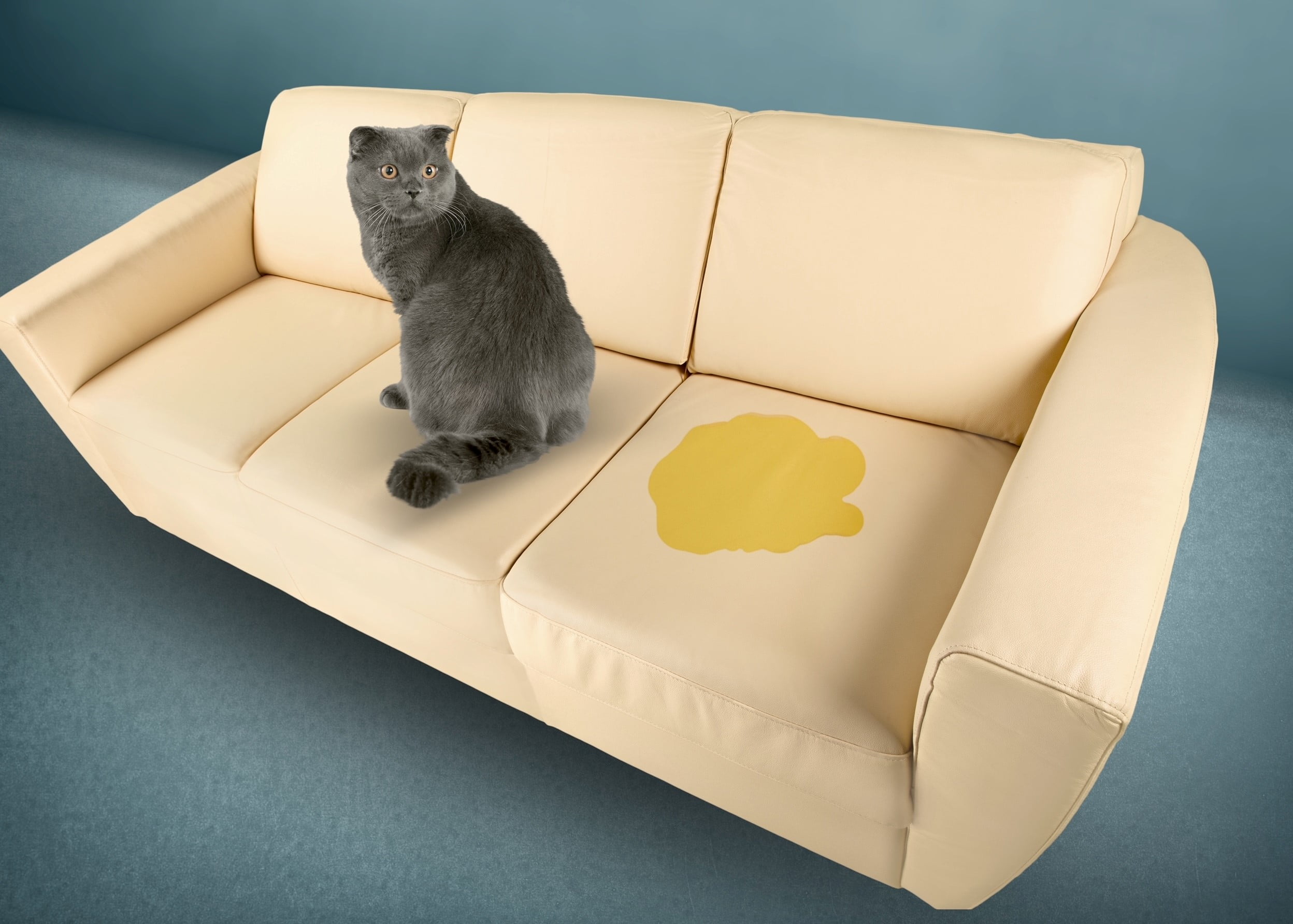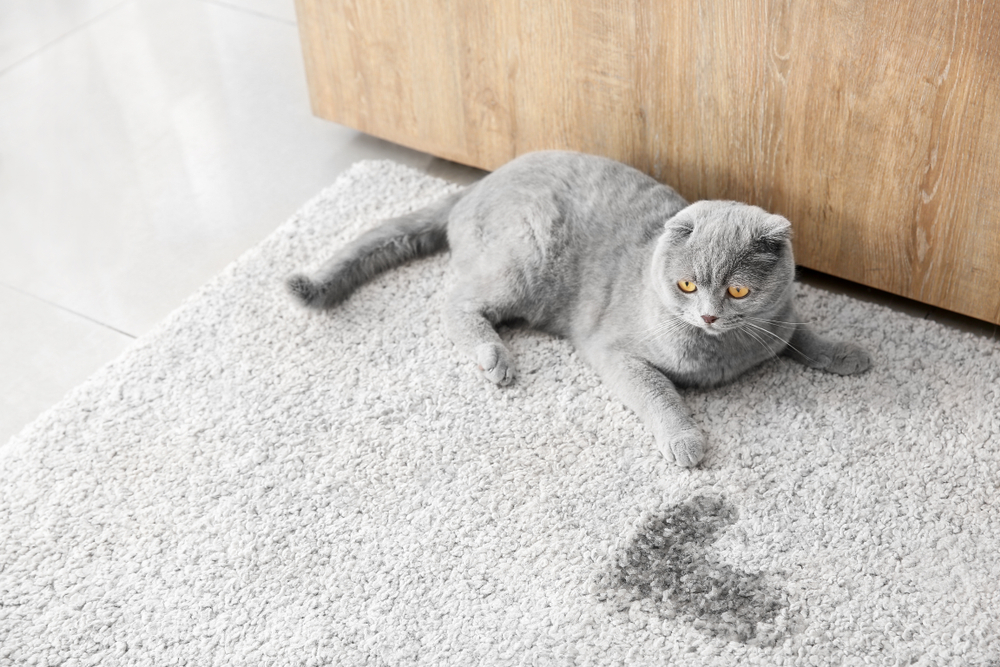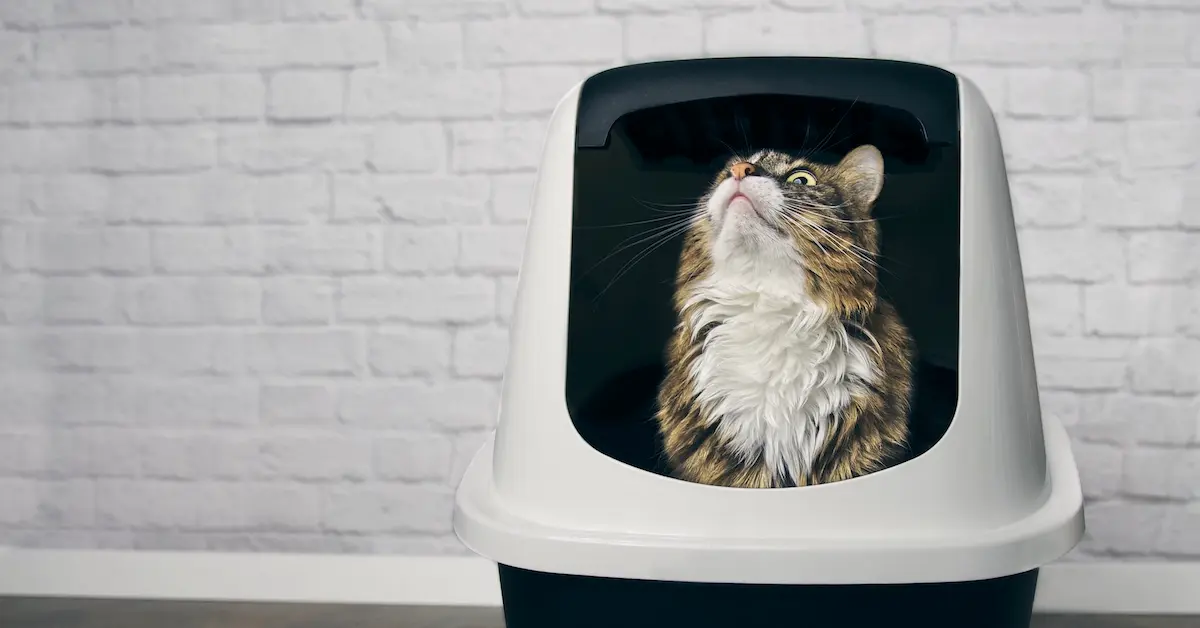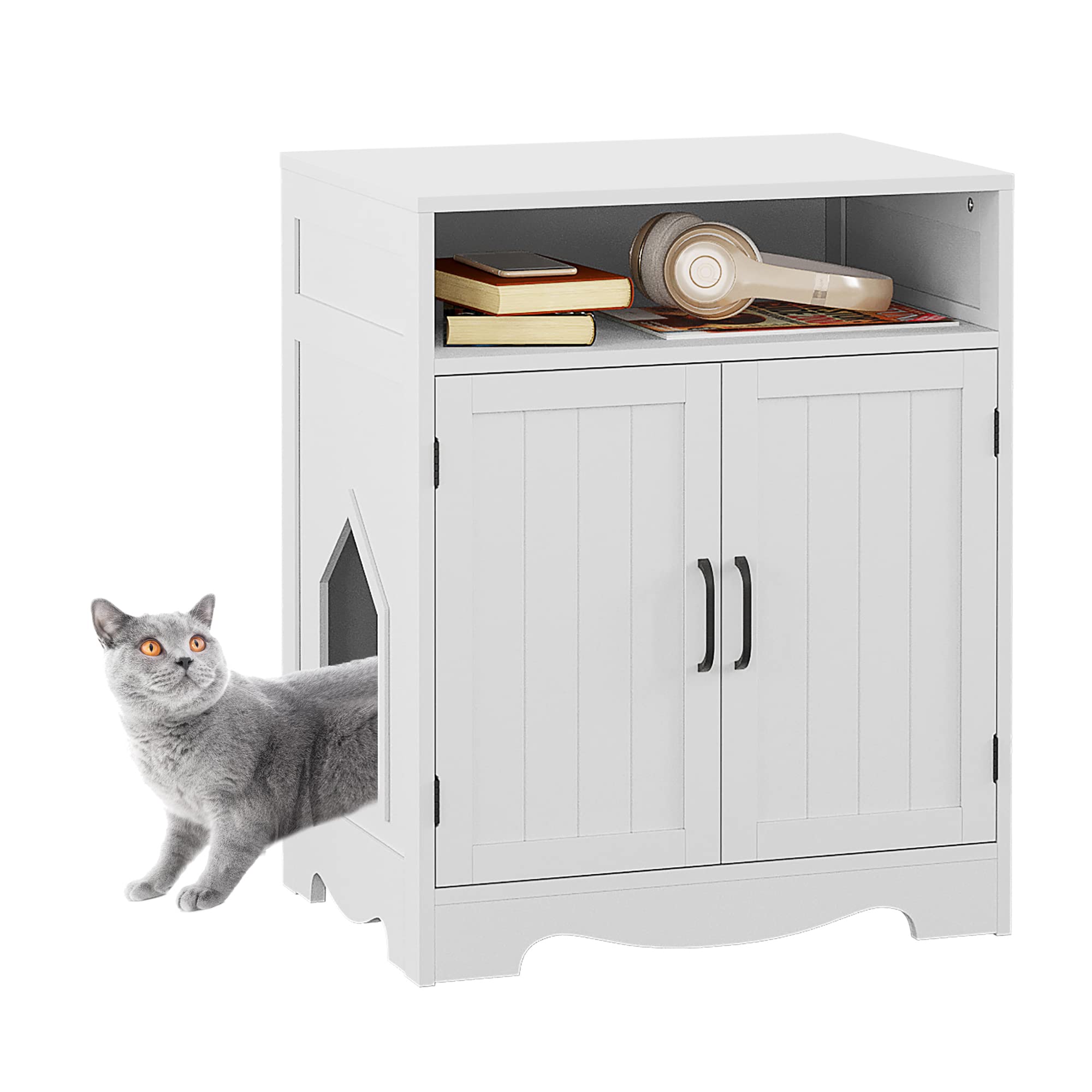Cats may pee outside the litter box due to medical issues or stress related to anxiety. Addressing these factors is vital in resolving the behavior.
Cats are wonderful pets, but their peeing outside the litter box can be frustrating and concerning for cat owners. It’s essential to understand the reasons behind this behavior. When your cat is peeing outside the litter box, it may signify an underlying medical condition such as a bladder infection, or it could be due to stress and anxiety.
Identifying and addressing these issues promptly is crucial in ensuring your cat’s health and well-being. This article delves into the potential reasons why cats exhibit this behavior and provides insight into how to remedy the situation. Let’s explore the possible causes and effective solutions for this common problem.
Common Reasons
Are you wondering why your cat is peeing outside the litter box? This behavior can be frustrating and concerning for cat owners. However, understanding the common reasons behind this behavior can help you address the issue effectively.
Territorial Marking
In some cases, cats may pee outside the litter box as a form of territorial marking. This behavior is more common in male cats, especially those who are not neutered. When a cat marks its territory, it is essentially leaving a scent that communicates ownership to other cats.
Cats may engage in territorial marking when they feel threatened or when there are changes in their environment, such as the introduction of a new pet or a move to a new house. It’s important to note that territorial marking is different from inappropriate elimination, as the latter may be a sign of a medical issue or other underlying problems.
Medical Issues
One of the primary reasons why cats pee outside the litter box is due to medical issues. Urinary tract infections, bladder stones, and other urinary tract problems can cause discomfort and pain, leading a cat to avoid using the litter box.
Additionally, cats with kidney disease, diabetes, or hyperthyroidism may also exhibit this behavior. These medical conditions can result in increased urination or changes in urine volume and composition, making it difficult for cats to control their bladder and use the litter box.
If you suspect that your cat’s inappropriate elimination is due to a medical problem, it’s crucial to consult with a veterinarian for proper diagnosis and treatment.
To summarize, cats may pee outside the litter box because of territorial marking or underlying medical issues. Understanding these common reasons can help you address the behavior effectively and provide the necessary support and care for your feline friend.

Credit: aercmn.com
Environmental Factors
Environmental Factors:
If you find yourself constantly wondering, “Why do cats pee outside the litter box?” then environmental factors could be one of the reasons behind this frustrating behavior. Cats are sensitive creatures, and disruptions or changes in their environment can lead to them peeing outside their designated area. Let’s explore some of the common environmental factors that may be causing your cat’s inappropriate elimination.
Litter Box Preference:
A cat’s litter box preference plays a crucial role in their overall litter box habits. Just like humans, cats have their own preferences and opinions. They may dislike certain types of litter, litter box locations, or the box itself. If your cat is suddenly peeing outside the litter box, it may be due to a change in their litter box preferences.
Here are a few factors to consider:
- The type of litter (clumping, non-clumping, scented, unscented).
- The size and depth of the litter box.
- The cleanliness and frequency of litter box maintenance.
By ensuring that you meet your cat’s litter box preferences, you can encourage them to use the litter box consistently, reducing the chances of them peeing elsewhere.
Stress Or Anxiety:
Cats are susceptible to stress and anxiety, which can lead to changes in their urination behavior. If your cat is experiencing stress, they may associate their litter box with negative experiences, causing them to avoid it altogether. Additionally, changes in their environment, such as moving to a new home, adding a new pet, or rearranging furniture, can trigger stress-related litter box issues.
Some common signs of stress or anxiety in cats include:
- Excessive grooming
- Increased hiding
- Loss of appetite
- Aggression
- Changes in sleep patterns
If you suspect that stress is the cause of your cat’s inappropriate elimination, it’s important to identify and address the underlying source of stress. Providing a calm and stable environment, using natural remedies, and seeking professional advice can all help alleviate your cat’s stress and encourage proper litter box usage.
Litter Box Management
Litter box management plays a crucial role in ensuring that your beloved feline friend does not exhibit any unusual behavior like peeing outside the litter box. Proper management of the cat’s litter box involves a few key components that significantly impact your cat’s behavior and well-being.
Location And Number
The location and number of litter boxes are essential factors when addressing why do cats pee outside the litter box. Generally, there should be one litter box per cat, plus one additional box, placed in different areas of the home. This multiple-box strategy prevents territorial disputes and allows your cat to have options for answering nature’s call.
Litter Type And Cleanliness
Equally important is the type of litter and its cleanliness why is my cat suddenly peeing outside the litter box. Cats have preferences for the texture and odor of their litter. It is essential to use unscented, clumping litter with a texture that your cat finds comfortable. Additionally, maintaining a clean litter box by scooping daily and replacing the litter regularly helps prevent aversion to the litter box.

Credit: microbelift.com
Behavioral Solutions
Addressing behavioral issues is crucial when understanding why cats pee outside the litter box. Several effective strategies can help modify their behavior and encourage them to use the litter box consistently.
Positive Reinforcement
- Use treats and praise to reward your cat when they use the litter box.
- Consistently reinforce positive behavior to create a strong association with the litter box.
- Avoid punishment as it can cause anxiety and worsen the problem.
Addressing Stress
- Identify sources of stress in your cat’s environment.
- Create a safe and calm space for your cat to reduce anxiety.
- Consult with a veterinarian for potential anti-anxiety medications if stress is severe.
Medical Intervention
Is your cat peeing outside the litter box? This could be due to medical issues or high levels of stress. Find out why and learn how to address this problem effectively.
Veterinary Evaluation
If you find your furry friend regularly peeing outside the litter box, it’s essential to seek a veterinary evaluation. A veterinarian will perform a thorough examination to determine any underlying medical conditions that may be causing this behavior. Remember, preventing and resolving the issue at the earliest can save your cat from discomfort and you from constant cleaning!
Treatment Options
Once your veterinarian has identified the cause of your cat’s inappropriate elimination, they will recommend appropriate treatment options based on the diagnosis. Some common medical interventions may include:
- Medication: Based on the underlying condition, your vet may prescribe medication to address the issue. This could include antibiotics to treat a urinary tract infection or anti-inflammatory drugs to reduce bladder inflammation.
- Dietary Changes: Depending on the diagnosis, your vet may recommend a dietary change to help manage or prevent recurrence of the issue. For example, special diets can be beneficial for cats with urinary crystals or bladder stones.
- Behavioral Modification: In some cases, behavioral modification techniques may be recommended to address stress-related inappropriate elimination. This could involve environmental modifications, pheromone therapy, or various forms of enrichment to reduce anxiety levels in your cat.
- Lifestyle Changes: Your veterinarian may suggest changes to your cat’s lifestyle that can help alleviate the problem. This might include providing additional litter boxes, changing the type of litter used, or adjusting the litter box location.
It’s important to follow your veterinarian’s advice closely and monitor your cat’s progress. Regular check-ups and open communication with your vet will ensure that the appropriate treatment plan is in place, and that you’re taking all necessary steps to resolve the issue and keep your feline friend healthy and happy. Remember, identifying the cause of your cat’s inappropriate elimination through a veterinary evaluation and implementing the recommended treatment options can help resolve the issue and improve your cat’s overall well-being.

Credit: ontariospca.ca
Frequently Asked Questions
Why Is My Cat Suddenly Peeing Outside The Litter Box?
Your cat may be peeing outside the litter box due to a bladder infection, anxiety, or stress. Provide a clean litter box, reduce stress, and consult a vet for medical issues.
Why Is My Cat Peeing On The Floor But Pooping In The Litter Box?
Cats may pee outside the box due to medical issues like bladder infections or stress-induced chemical imbalances.
How Do You Punish A Cat For Peeing Outside The Litter Box?
Avoid punishing your cat for peeing outside the litter box. It can worsen the behavior, causing fear and stress.
How Do I Get My Cat To Stop Peeing Everywhere But The Litter Box?
To stop your cat from peeing outside the litter box, ensure it’s clean and accessible. Consider using different litter and providing multiple boxes.
Conclusion
Understanding the reasons behind your cat’s inappropriate elimination behavior is crucial for finding the right solution. Identifying any underlying medical conditions, minimizing stress factors, providing a conducive litter box environment, and avoiding punishment are key steps to tackling this issue.
With patience and proper care, you can help your cat overcome this challenge and restore harmony in your home.





2 Responses